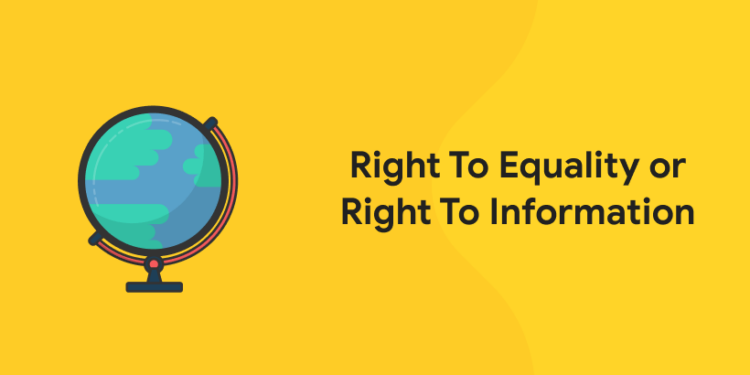Table of Contents
The constitution of India was drafted in such a manner that all of the citizens of the country were provided with very special rights. All of the citizens of India must follow the constitution of the country and must-have information related to the rights provided to them through this constitution so that they can practice their rights in order to save themselves from various exploitation practices going on inside the country. You can take into account the duties also available in the constitution of the country and be a part of the most amazing citizens of this country. All the citizens must read the constitution of India at least once in their lifetime in order to check out the specifications related to the rights and duties of all the citizens. You can check out the specifications of the right to equality and the right to information from the blog shared below. You must also have proper information about the fundamental rights of India. Make sure to check out the right to equality article to know more.
Right To Equality
The right to equality is gladly mentioned in the constitution of India and it says that the Government will not deny any person in India equality before the law or the equal protection of the law. These laws apply in the same manner to all of the citizens of India regardless of the person’s status. The right to equality is also called the rule of law. The rule of law is the foundation of any type of democracy and it means that no person is above the law. There can be no distinction between a political leader, a government official and an ordinary citizen of India. From the Prime Minister To a small farmer in a remote village will be subjected to the same laws irrespective of their status. None of the citizens of India will be eligible to get special treatment according to the right to equality. The government shall not discriminate against any citizen on grounds only of religion, race, caste, sex or place of birth. Every citizen shall have access to public places like shops, restaurants, hotels, and cinema halls. Similarly, there shall be no restriction with regard to the use of wells, tanks, bathing ghats, roads, playgrounds and places of public resorts maintained by the government or dedicated to the use of the general public.
Check out the video lessons And Improve Your GK Now
Right To Information
1: Who was the first woman President of India?
The constitution of India also has a right to Information Act which was launched in the year 2005 and it says that the citizens will be getting a response to their request for government information. The right to Information Act is to empower the citizen so that they can get proper information related to the government procedures. It also promotes transparency and accountability in the working of the Indian government. This right to Information Act is to make our democracy work for the people in a real sense and the people will also be able to know more about the government procedures through the Right to Information Act. The act is one of the major steps taken by the Indian government to promote transparency in government procedures and help the people no more about the working phenomena of the Indian government. The RTI Act was made by the registration of the parliament of India on 15th June 2005. The act came into effect on 12th October 2005 and since then it has been working for the Government of India.
Free UPSKILLING Courses!
Take your first step toward mastering in-demand skills, acing interviews, and securing top-tier jobs with Entri's free upskilling courses.
Start Learning!Fundamental Rights Of Indian Citizens
There are several rights which are present in the Indian constitution and it is important that you must have proper information regarding these rights so that you can use these rights in a time of crisis. Make sure that you have proper information related to the list of articles included in each and every right present in the constitution of India. You can check out the pointers given below in order to know more about the list of rights available to the Indian citizens irrespective of their caste, creed, gender or religion.
- Right to equality (Articles 14–18)
- Right to freedom (Articles 19–22)
- Right against exploitation (Articles 23–24)
- Right to freedom of religion (Articles 25–28)
- Cultural and educational rights (Articles 29–30)
- Right to constitutional remedies (Article 32)
Check out the mock tests And Improve Your GK Now
Entri is a public platform which was created by well-known experts in the industry and this platform hosts a lot of different types of video lessons created by the well-known expert so that the students can learn about the competitive examinations without having to go to different types of coaching centres. We provide online classes to all of the competitors and help them to crack the government examination on their first try and get a chance to serve prestigious government organisations present in India. Make sure to check out the mock test series available on our platform and download the study materials to start your preparations.














